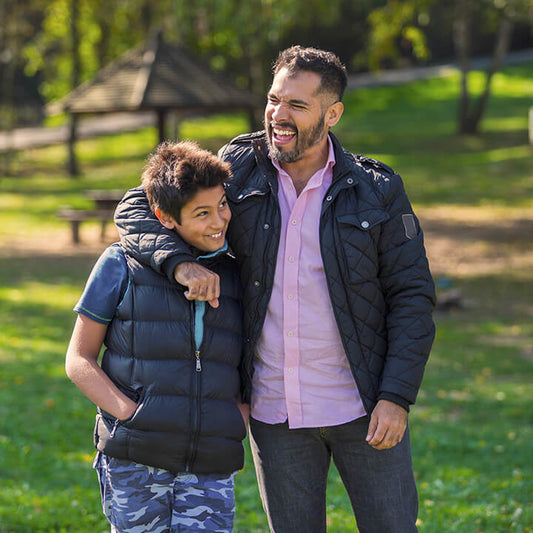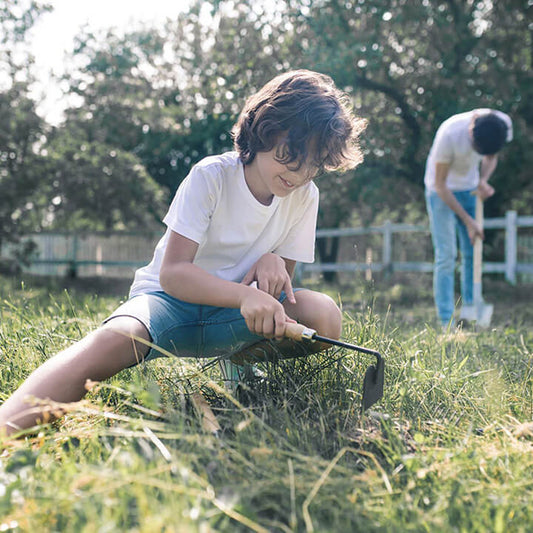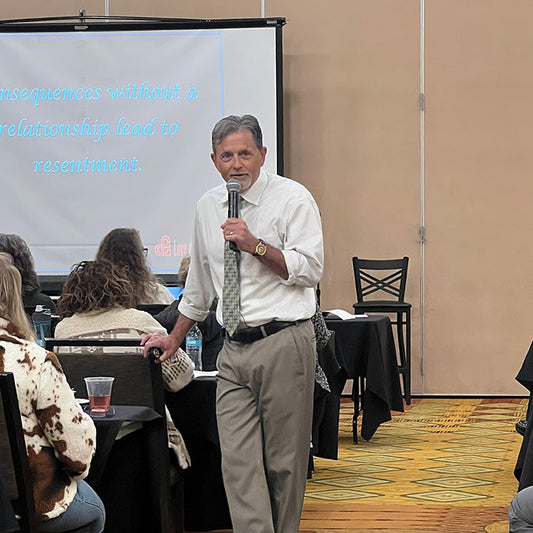In a world that often feels like it’s spinning faster than we can keep up, helping our children find their way isn’t just about giving them the right tools—it’s about helping them discover the deeper meaning behind what they do. As parents and educators, we have the incredible opportunity to guide our children towards a life of purpose. This isn’t just some lofty ideal; it’s the foundation for a fulfilling and successful life.
When children understand their unique contributions to the world, they’re more likely to grow into motivated, responsible, and caring adults. Let’s explore how we can nurture this sense of purpose in our kids.
Why Purpose Matters?

Before we dive into the practical stuff, let’s talk about why purpose is such a big deal. A sense of purpose gives kids a roadmap for life. It helps them make healthy and responsible decisions, stay motivated, and understand the impact of their actions on others. Kids with a clear sense of purpose are more resilient, less likely to get derailed by bumps in the road, and more focused on achieving meaningful goals.
Children with a strong sense of purpose don’t just float through life. They’re anchored by their values, passions, and a clear understanding of how they can make the world a better place. This often translates into better grades, stronger relationships, and a deeper sense of fulfillment. But how can we, as parents and educators, help them get there?
1. Lead by Example: Live Your Own Purpose
Kids learn more from what we do than from what we say. If we want our children to live with purpose, we need to show them what that looks like. Take a moment to reflect on your own values, passions, and contributions. Talk to your kids about these things. Let them see you engage in activities that align with your purpose—whether that’s volunteering, pursuing a meaningful career, or simply helping a neighbor.
When kids see the adults in their lives living with purpose, it becomes more than just a concept—it becomes a way of life. They start to see that life isn’t just about getting what you want; it’s about making a difference.
2. Help Them Find Their Passions
Purpose often starts with passion. Encourage your child to explore different activities and interests. Pay attention to what lights them up, what they talk about endlessly, and what brings them joy. These are the seeds of their passions.
For younger kids, this might mean trying out different sports, arts, and hobbies. As they get older, help them dive deeper into the things they love. Give them opportunities to pursue these interests, whether it’s through classes, clubs, or community groups.
Remember, passions can evolve. Encourage your child to stay curious and open to new experiences. Purpose isn’t something you find once and hold onto forever; it’s something that grows and changes over time.
3. Encourage Helping Others
One of the most powerful ways to instill a sense of purpose in kids is to involve them in helping others. When kids see the difference they can make, it boosts their self-esteem and helps them develop empathy.
Start with small things such as helping a neighbor with yard work, participating in a community clean-up, or volunteering at a local shelter. As your child grows, encourage them to take on bigger projects. Maybe they’ll want to start a recycling program at school, organize a fundraiser, or advocate for a cause they care about.
When kids realize that their actions can have a positive impact, they begin to see that life is about more than just themselves. This sense of contribution is a key part of finding purpose.
4. Teach the Value of Goals and Hard Work
Purpose-driven people set goals. They know what they want to achieve and are willing to work for it. Teach your child the importance of setting and working towards goals.
Start with small, achievable goals. Maybe it’s mastering a new skill, completing a project, or improving a grade. Help them break down big goals into smaller steps. Recognize their successes but avoid excessive praise.
It’s also important for kids to develop perseverance. Life isn’t always easy, and achieving goals often means pushing through challenges. Encourage your child to see setbacks as learning opportunities, not as reasons to give up.
5. Foster a Growth Mindset
Kids with a growth mindset believe they can get better with effort. They’re more likely to take on challenges, stick with them, and see hard work as the path to success—all crucial for developing a sense of purpose.
To foster this mindset, focus on the effort, not just the outcome. Acknowledge your child’s efforts when they work hard, stick with something difficult, or learn from their mistakes. Encourage them to take on new challenges and see mistakes as part of the learning process.
A growth mindset also helps kids set their own goals and reflect on their progress. Help your child understand that purpose isn’t a destination but a journey that involves continuous learning and growth.
6. Connect Their Interests to Real-World Issues
Kids often find purpose when they see how their interests connect to the world around them. Help your child understand how their passions can be used to solve real-world problems.
If they love animals, perhaps they can get involved in animal rescue efforts. If they’re into technology, show them how they can use it to solve problems or help others. The key is helping them see the bigger picture—how their talents and interests can make a difference.
When kids see the impact they can have, their sense of purpose deepens. They start to understand that what they do matters, and that they can use their skills for good.
7. Promote Reflection and Self-Awareness
Kids need time and space to think about their values, goals, and experiences. Encourage your child to reflect on what they’ve learned, what they care about, and what they want to achieve.
Ask open-ended questions like:
- What do you enjoy doing the most?
- What things do you do well, and how can you do those things to help others?
- What do you want to accomplish in the future, and why?
- How do your actions today align with your long-term goals?
These questions help kids think about their purpose and how they can live it out. Over time, this self-awareness will help them make decisions that are aligned with their values and goals.
8. Notice the Small Wins
Purpose isn’t something you achieve overnight. It’s built over time, through small steps and daily actions. Let your child know that you recognize their progress, no matter how small. Acknowledge their effort, growth, and the positive impact they’re making.
Encouragement and appropriate recognition for small wins helps kids stay motivated. It shows them that the purpose is about the journey, not just the destination. It helps them see that they’re on the right path, even when the road gets tough.
9. Encourage Independence and Decision-Making
Kids need to develop a sense of independence to fully embrace their purpose. Encourage your child to make decisions, take on responsibilities, and pursue their interests on their own. Let them experience the natural consequences of their choices, both good and bad.
When kids have the freedom to make right decisions, they learn to take ownership of their lives. This independence is crucial for developing a strong sense of purpose. It empowers them to pursue their goals with confidence and to live their lives with intention.
10. Create a Supportive Environment
Finally, creating a supportive environment is key to helping your child develop a sense of purpose. This means providing them with the resources, encouragement, and emotional support they need to explore their passions and pursue their goals.
Be an active listener. Show genuine interest in your child’s interests and aspirations. Encourage them to express their thoughts and ideas and validate their feelings. Provide constructive feedback when needed, but also give them the space to figure things out on their own.
A supportive environment also means surrounding your child with positive role models. Encourage them to seek out mentors who can provide guidance and inspiration. These relationships can be incredibly powerful in helping your child navigate their journey towards finding their purpose.
11. Emphasize the Value of Gratitude
Gratitude is closely linked to a sense of purpose. When kids learn to appreciate what they have and the people in their lives, they’re more likely to feel a sense of responsibility to give back.
Encourage your child to practice gratitude daily. This could be through simple acts like thanking someone who helped them, keeping a gratitude journal, or just reflecting on the good things in their day. When gratitude becomes a habit, kids develop a mindset that values connection, contribution, and purpose.
12. Expose Them to Different Perspectives
Kids can find purpose by learning about different cultures, communities, and ways of thinking. Encourage your child to explore new ideas and perspectives, whether it’s through books, conversations, or experiences.
By understanding different worldviews, your child can develop a broader sense of purpose. They may be inspired to take on global challenges, advocate for social justice, or find new ways to contribute to the world.
Helping Your Child Live a Purposeful Life
Instilling a sense of purpose in your child is one of the greatest gifts you can give. Purpose gives kids direction, motivation, and a framework for living a fulfilling life. By helping your child discover their passions, connect with real-world issues, and develop a growth mindset, you’re setting them up for a life of meaning and contribution.
Remember, finding purpose is a journey, not a destination. Be patient, supportive, and encouraging as your child navigates this path. Celebrate their progress, provide guidance when needed, and most importantly, model a purposeful life yourself.
By Raising Mentally Strong Kids, you’re not just preparing them for success; you’re helping them become the kind of person who makes a lasting difference in the world. And in the end, isn’t that what we all want for our kids?
Thanks for reading!
The Love and Logic Team
























































